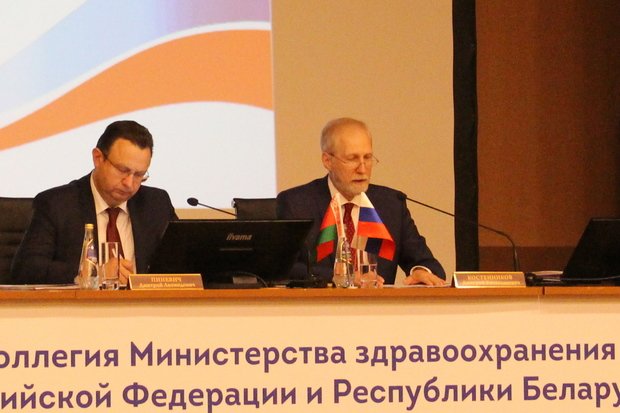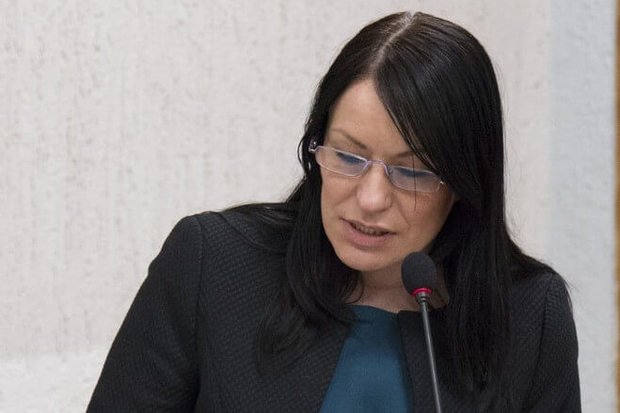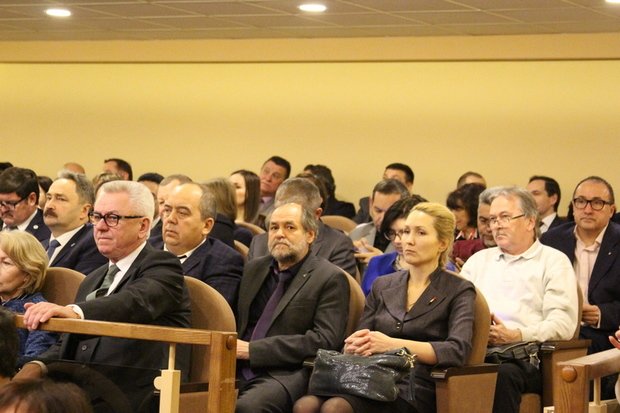What’s the matter? Russian and Belarus medics resolve personnel issues in Kazan
Common sore points were discussed during both countries’ health ministers’ forum in Tatarstan
Tatarstan and Belarus will develop cooperation in medical staff training and cancer treatment. This was announced at the opening of the joint forum of health ministries of Russia and the Republic of Belarus on 13 November. A signing of the road map on a memorandum of understanding between the ministries two years ago and cooperation in continuing medical and pharmaceutical education is supposed to be the outcome of the forum, which lasted for two days. Realnoe Vremya's correspondent visited the forum and found out what opportunities the host – the Tatarstan Health Ministry – will have within the cooperation of the two countries.
The meeting place can be easily explained
Deputy Health Minister of Russia Dmitry Kostennikov explained the unexpected choice of Kazan as a place to hold the forum of the two countries' health ministries and Kazan State Medical Academy as a specific meeting place not only by hospitality and guaranteed reception of the Belarus delegation in the best possible way but also professional interest in Tatarstan's accomplishments in medical staff training.
''Tatarstan is far from being halfway between Russia and Belarus. Why did you make a detour to discuss issues that have nothing to do with our region directly?'' Realnoe Vremya's correspondent was surprised.
''Kazan is one of the Russian centres where medicine and medical services develop quite dynamically as well as medical education,'' Kostennikov disagreed. ''Now we are in an educational establishment that was first to be created in the Soviet Union in 1920 as an educational organisation for postgraduates, which was aimed to develop doctors' skills. And education is the theme of the forum…''
Kostennikov also noted it was also planned to hold such forums in other big Russian scientific centres in the future, ''so that our partners and colleagues will see how our country developed, in general, what problems we have and how we solve them.''

Experience exchange: their standards and our innovations
The participants of the forum began the discussion of problems in personnel training in both countries. In her speech, Director of the Education and Staff Politics Department in the Russian Health Ministry Tatiana Semyonova indicated the drawbacks of the current model of Russian medical education and gave to understand the diversity of education programmes, which are different at different universities, weren't for the good:
''Citizens have equal rights for quality medical help… We've decided to reconsider specialists' training in residency.''
Semyonova said the most demanding documents in terms of professional training – exemplary educational programmes – hadn't been almost created and approved in the medical education system in the last 15-20 years. She stressed the word ''exemplary'' shouldn't confuse anybody – it's strict unification of training system and standardisation of requirements for professional knowledge, skills and experience of medics.
Director of the Staff Department of the Ministry of Health of the Republic of Belarus Olga Marshalko, in turn, gave to understand Belarusian colleagues didn't have problems of unification of medical education:
''All educational establishments on the territory of the republic are state, they apply unified educational standards.''
However, according to Marshalko, innovations, which have been successfully applied in Russia for long, need to be immediately introduced to the medics' training programme. Particularly, to wider use opportunities of online education and start training specialists Belarus doesn't teach now, for instance, transplantologists and X-ray diagnosticians. And cooperation with Russia whose universities have been teaching these specialities for long and successfully will help here. The creation of a chain of university clinics can become another sphere of cooperation (let's note that Kazan might ''score points'' here in the future, a university clinic has been operating for many years).

Common deficiency
Olga Marshalko voiced a problem that unites Belarus and Russia and is acute in Tatarstan – a medical staff deficit. According to the Belarusian Health Ministry, the staffing level in the republic is 95,7% on average, and the rate of people with more than one job reached 1,36. The level of medics in Belarusian medical establishments is 97,3% with the rate of 1,26. According to the data published on the health ministry's website last year, the level of doctors offering medical help to outpatients was just 85,9% with the rate of 1,3 in 2016, and the level of staff therapists, paediatricians and general practitioners was 86,1%…
As Realnoe Vremya wrote previously, the staffing level of doctors in Kazan clinics is by far lower – it doesn't even reach 79% of the needed quantity. But the staffing level of medics is higher than the average indicator in Russia – 86,5%.
Where do medical staff whom Tatarstan, Russia and Belarus train more year after year go? The Russian side didn't answer to this question at the meeting, but Deputy Health Minister of the Republic of Belarus Dmitry Pinevich, who took part in forum, said that newly baked specialists in medicine directly went in both directions – to the East and… the EU. He noticed that ''it's not a reasonable reply'' to train more and more medics in this situation to have enough in the country because the quality of training will suffer in such a race, first of all, which means a worse quality of future medical help.

Hurry up!
Rector of Russian Medical Academy of Continuing Education of the Russian Ministry of Health Larisa Moshetova offered several spheres for scientific cooperation with Belarus at once – in malignant tumour treatment based on the latest – multidisciplinary – approach, in creation of advanced correction methods of age-related changes in ocular tissues with regenerative medicine technology, creation of a modern diagnostic system, treatment and prevention of viral hepatitis and socially significant infections – from HIV to tuberculosis. She also claimed the necessity of joint work to create clinical recommendations that doctors need, develop simulation technologies to train specialist to work in emergency and cooperate in university science and translational medicine. Moshetova also raised a question of joint training of teachers for medical educational establishments, which require an immediate solution: ''Education is ineffective without them!''
Dmitry Pinevich, in turn, offered to reduce the deadline of the memorandum of understanding between ministries on cooperation in continuing medical and pharmaceutical education by two years – from 2025 to 2023. He directly admitted it would be easier for him as a functionary not to hurry up. However, as a specialist taking care of business, he just has to hasten to make overdue transformations.